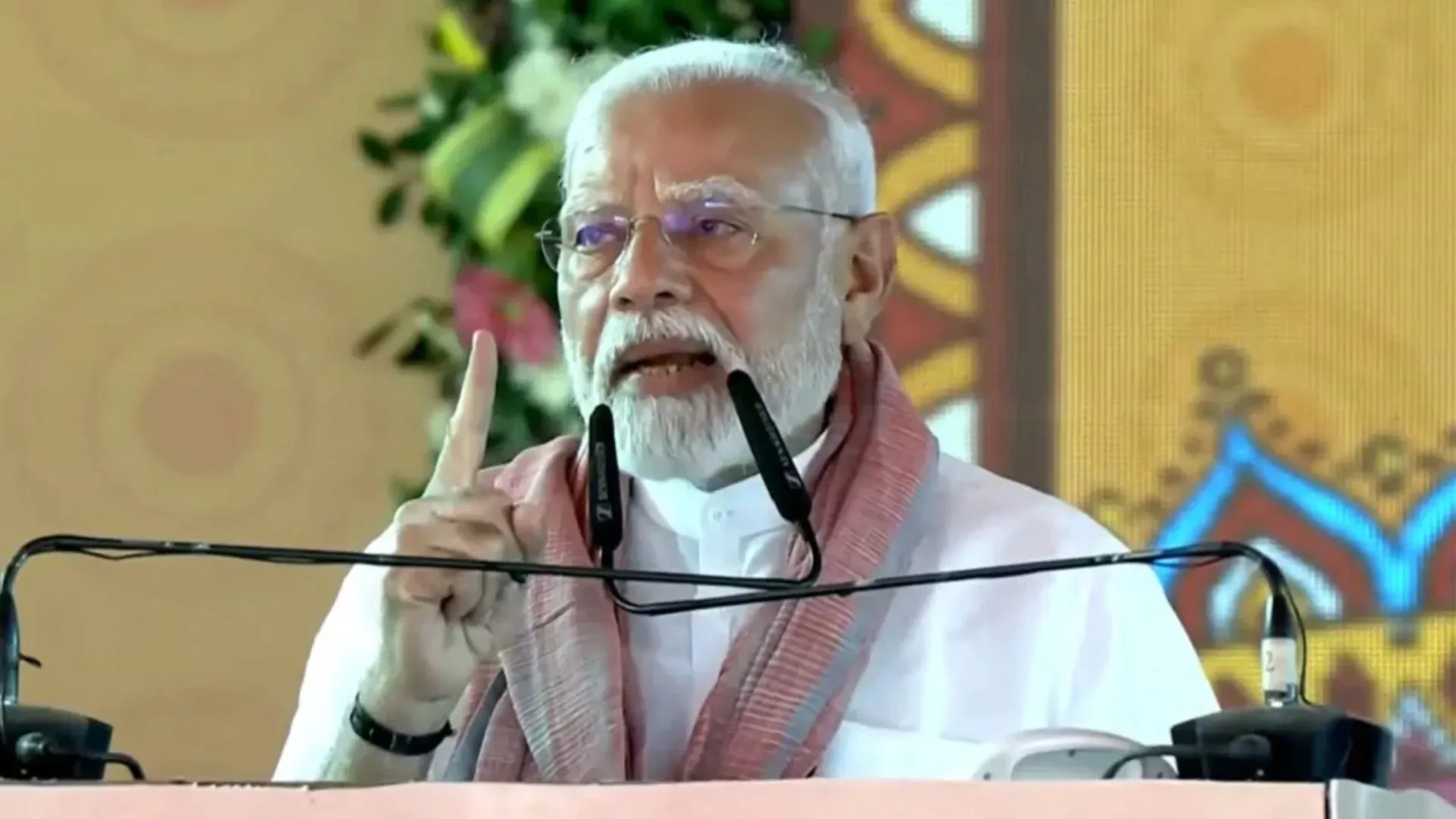 Updated: Apr 25, 2025 | 02:59 AM IST
Updated: Apr 25, 2025 | 02:59 AM IST
Two days after a brutal terror attack in Jammu and Kashmir’s Pahalgam claimed the lives of 25 tourists and a local Kashmiri, Prime Minister Narendra Modi delivered a strong message from Bihar’s Madhubani, asserting that India will identify, track, and punish every terrorist and their backers.

“Our spirit will never be broken,” the Prime Minister declared, addressing a government event. He began his speech with a moment of silence in memory of the victims and later expressed solidarity with the grieving families across the country.
“The whole country is in pain because of the ruthless manner in which terrorists killed innocent tourists in Pahalgam,” Modi said. “The whole country is with the bereaved families. The government is trying its best to ensure the well-being of those injured.”
In a swift and sweeping response, the Indian government has announced a series of punitive measures against Pakistan, which has been linked to the deadly attack. The Cabinet Committee on Security (CCS), India’s apex decision-making body on national security, convened and rolled out a comprehensive five-point action plan aimed at Pakistan’s diplomatic and logistical apparatus.
1. Indus Waters Treaty Suspended
One of the most significant moves was the suspension of the Indus Waters Treaty, a long-standing water-sharing agreement between India and Pakistan signed in 1960. India stated the suspension will remain in force until Pakistan ceases support for cross-border terrorism.
2. Closure of Attari-Wagah Border Check Post
India has shut down the Attari-Wagah Integrated Check Post, effectively halting all cross-border movement of people and goods through this critical land route. Those who have crossed into India with valid documents will be permitted to return by May 1, 2025.
3. Cancellation of SAARC Visa Exemption for Pakistan Nationals
In a major blow to diplomatic engagement, the SAARC Visa Exemption Scheme (SVES) has been suspended for all Pakistani nationals. All previously issued SVES visas have been invalidated, and Pakistani citizens currently in India under this scheme have been given 48 hours to leave the country.
4. Expulsion of Pakistani Military Advisors
India has expelled all Pakistani military, naval, and air advisors from the Pakistani High Commission in New Delhi. They have been declared Persona Non Grata and ordered to leave within one week. In a reciprocal move, India will withdraw its own military advisors from the Indian High Commission in Islamabad.
5. Reduction of Diplomatic Personnel
India also announced it will reduce its diplomatic staff in Islamabad from 55 to 30 personnel by May 1, 2025, as part of a broader effort to downscale bilateral ties with Pakistan.
As investigations continue, the nation remains gripped by grief and anger. The government has vowed that the perpetrators and their sponsors will be brought to justice.
“India will not forgive or forget,” PM Modi said, reaffirming the government’s determination to confront terrorism head-on. “We will identify and punish every terrorist and every hand that supports them.”
Also Read: India Expels Pakistani Military Diplomats After Pahalgam Terror Attack
In the wake of the recent terror attack in Pahalgam, Indian Army Chief General Upendra Dwivedi is scheduled to visit Srinagar on Friday to assess the prevailing security situation in the region.
The Chief of Army Staff, who recently addressed personnel at the Army War College in Mhow, Madhya Pradesh, is expected to hold high-level discussions with security officials during his visit.
Meanwhile, the Ministry of External Affairs held a special 30-minute briefing for selected G20 diplomats, including representatives from China and Canada, to inform them about the tragic incident and the ongoing response efforts.